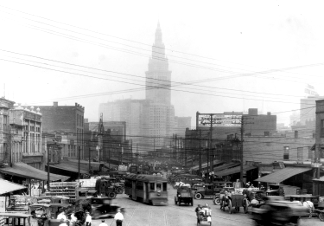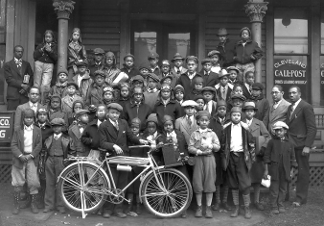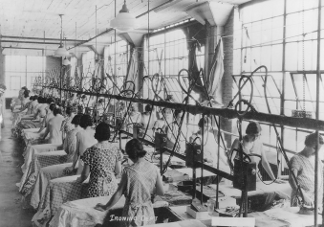HOWE, FREDERIC C. (21 Nov. 1867-3 Aug. 1940), Progressive reformer, was born in Meadville, Pa. to Andrew Jackson and Jane Clemson Howe. He graduated from Allegheny College (1889) and Johns Hopkins University (Ph.D., 1892), entered law school in New York, then settled in Cleveland in 1894, working for the law firm of Harry & Jas. Garfield, becoming a partner in 1896.
Howe became active in the work of Goodrich Social Settlement, the Municipal Assoc. (see CITIZENS LEAGUE OF GREATER CLEVELAND), and the CHARITY ORGANIZATION SOCIETY. He soon resigned from the latter, concerned that it was designed to keep the poor out of sight, and withdrew from the settlement, frustrated by its ineffectiveness. He then turned to politics in his efforts to reform society. The Municipal Assoc. (see CITIZENS LEAGUE OF GREATER CLEVELAND) in which he was also involved urged him to run in 1901 for city council as a Republican. During the campaign, he was intrigued by Tom Johnson and cooperated closely with him after both were elected. Soon caught in the natural-gas franchise controversy, learning that even Municipal Assoc. members had special interests they expected promoted, Howe ran for reelection as an independent but lost. Howe served as president of the Sinking Fund Commission (1904-05), state senator (1906-08), and member of Cleveland's Board of Quadrennial Appraisers (1909). In 1910, Howe left for New York City.
Howe published a book on taxation (1896); The City: The Hope for Democracy (1905); The Confessions of a Monopolist (1906); and The British City: The Beginnings of Democracy (1907) while in Cleveland. He lectured at Cleveland College of Law and Western Reserve University. In New York, Howe was director of the People's Institute (1911-14) and commissioner of immigration for the port (1914-19). In 1932 Howe supported Franklin D. Roosevelt and was appointed consumers' counsel in the Agricultural Adjustment Admin., resigning in 1937. In 1904, Howe married Marie H. Jenney (d. 1934), a Unitarian minister and prominent feminist. They had no children. Howe died in Martha's Vineyard, New York and was buried in Meadville, Pennsylvania.
Last Modified: 13 May 1998 11:26:09 AMHowe, Frederic C. The Confessions of a Reformer (1925).
- Related Article(s)









